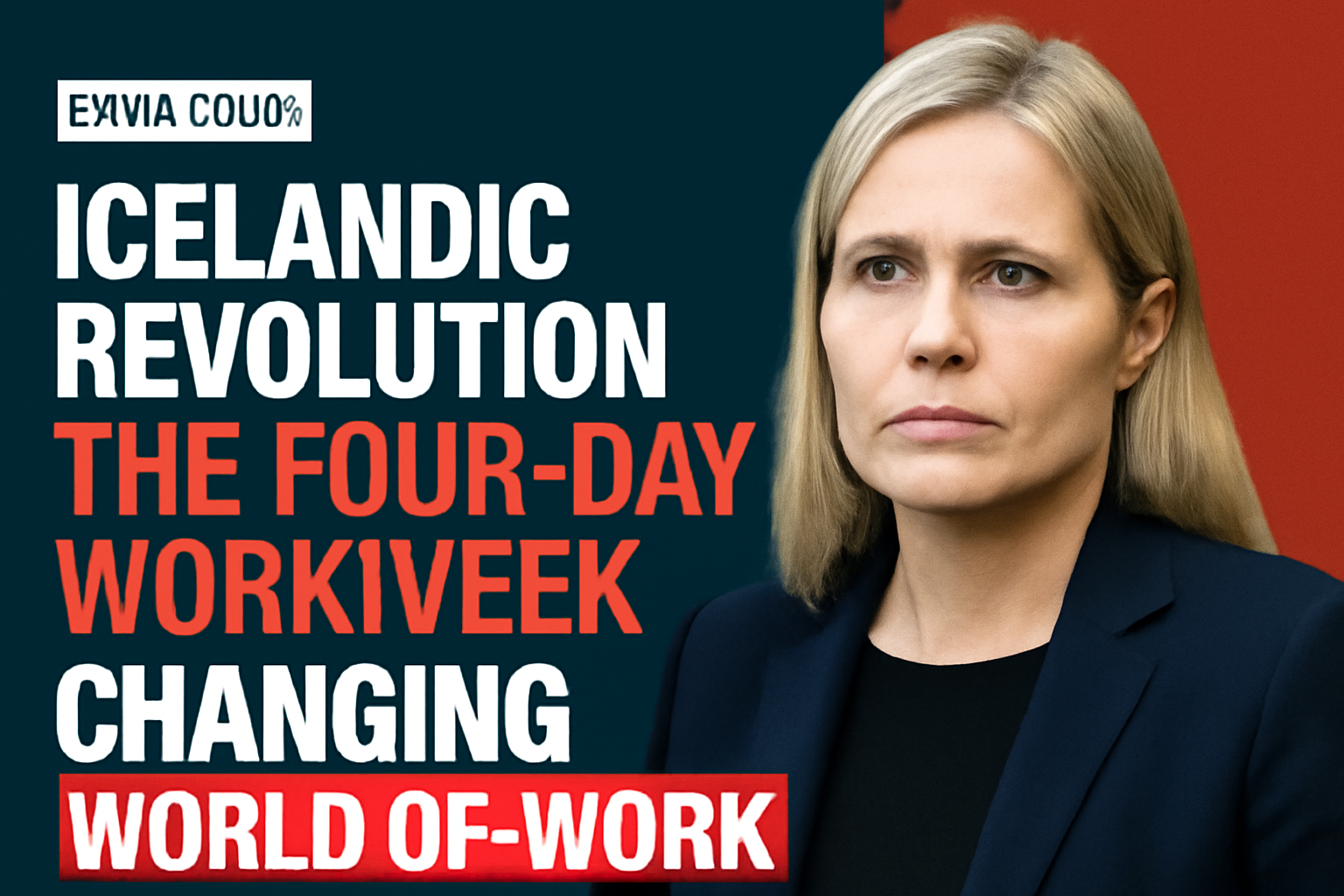Imagine a world where you work less but earn the same or almost the same! Yes, you read that right. Iceland did it, and now the world looks at them as pioneers of the future of work. Since 2015, about 2,500 workers in Iceland participated in a pilot project reducing the workweek from 40 to 36 hours without pay cuts. The results? Stunning! Workers’ mental health skyrocketed, productivity did not drop and even increased in some sectors, and gender equality got a boost as men became more involved in family life. Nearly 90% of Icelandic workers now enjoy this model, which is not just an experiment but a true revolution in how we work. Unlike other countries where a four-day workweek means longer workdays, Iceland reduced total work hours while keeping salaries the same! The government invested in digital infrastructure, enabling workers to stay productive with fewer hours. Generation Z, known for their digital skills, adapted easily, while automation and digital tools cut down wasted time. This model benefits not only workers but society as a whole — healthcare costs dropped, and people are happier and more satisfied. Poland is now following a similar path, introducing an experimental four-day workweek, while other European countries like Spain, France, and Belgium consider similar reforms. Iceland has shown it’s possible to create a more humane and sustainable work system that puts people’s well-being first. Isn’t it time we stop glorifying overtime and start working smarter, not harder? Got thoughts? Drop a comment — maybe you have the recipe for a happier work life!
Icelandic Revolution: The Four Day Workweek Changing the World of Work









